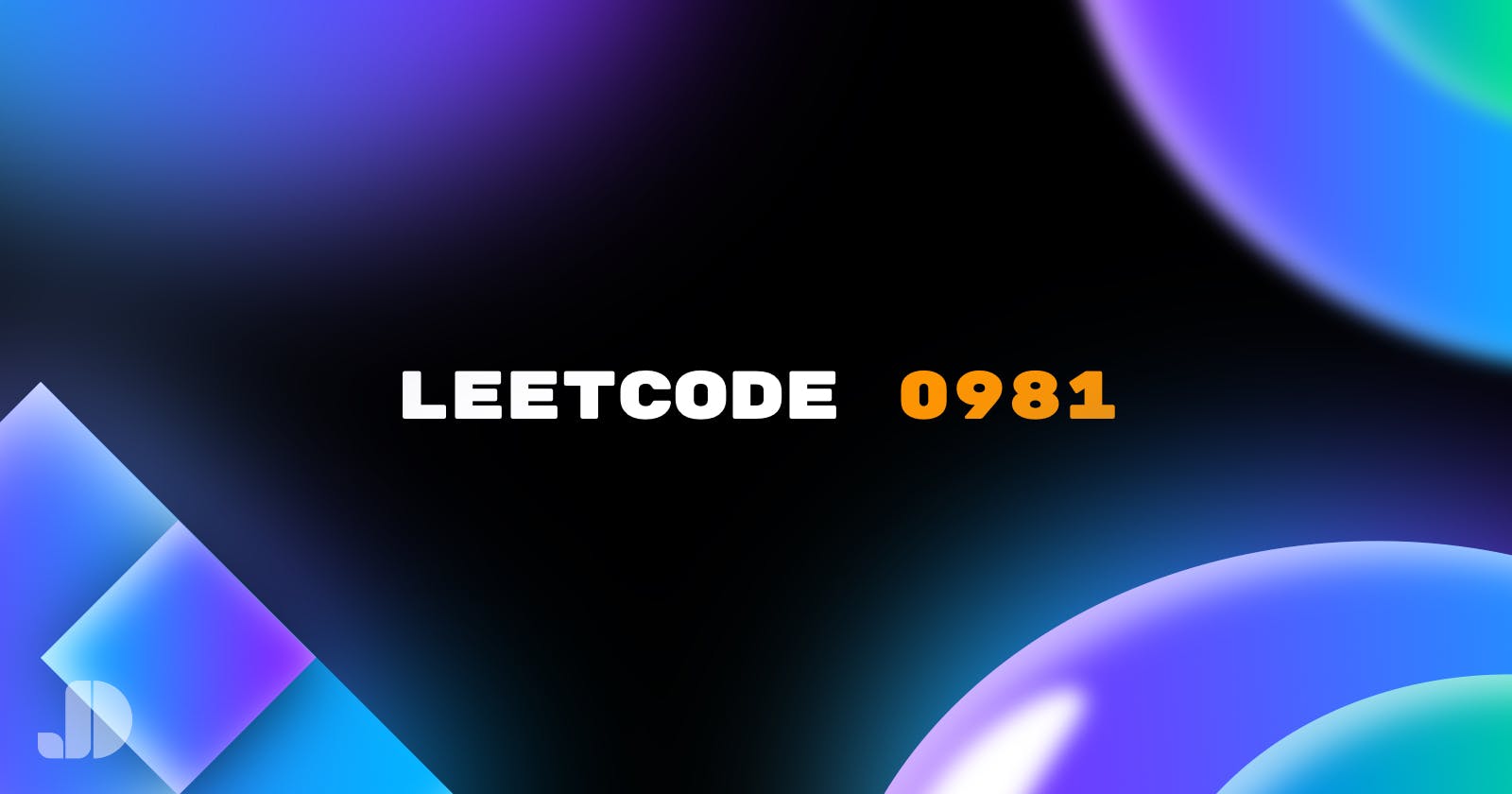Problem - Leetcode
Design a time-based key-value data structure that can store multiple values for the same key at different time stamps and retrieve the key's value at a certain timestamp.
Implement the TimeMap class:
TimeMap()Initializes the object of the data structure.void set(String key, String value, int timestamp)Stores the keykeywith the valuevalueat the given timetimestamp.String get(String key, int timestamp)Returns a value such thatsetwas called previously, withtimestamp_prev <= timestamp. If there are multiple such values, it returns the value associated with the largesttimestamp_prev. If there are no values, it returns"".
Example 1:
Input
["TimeMap", "set", "get", "get", "set", "get", "get"]
[[], ["foo", "bar", 1], ["foo", 1], ["foo", 3], ["foo", "bar2", 4], ["foo", 4], ["foo", 5]]
Output
[null, null, "bar", "bar", null, "bar2", "bar2"]
Explanation
TimeMap timeMap = new TimeMap();
timeMap.set("foo", "bar", 1); // store the key "foo" and value "bar" along with timestamp = 1.
timeMap.get("foo", 1); // return "bar"
timeMap.get("foo", 3); // return "bar", since there is no value corresponding to foo at timestamp 3 and timestamp 2, then the only value is at timestamp 1 is "bar".
timeMap.set("foo", "bar2", 4); // store the key "foo" and value "bar2" along with timestamp = 4.
timeMap.get("foo", 4); // return "bar2"
timeMap.get("foo", 5); // return "bar2"
Constraints:
1 <= key.length, value.length <= 100keyandvalueconsist of lowercase English letters and digits.1 <= timestamp <= 10<sup>7</sup>All the timestamps
timestampofsetare strictly increasing.At most
2 * 10<sup>5</sup>calls will be made tosetandget.
Solution in Golang
type TimeMap struct {
store map[string][]ValStamp
}
type ValStamp struct {
Val string
Time int
}
func Constructor() TimeMap {
return TimeMap{store: make(map[string][]ValStamp)}
}
func (this *TimeMap) Set(key string, value string, timestamp int) {
if _, ok := this.store[key]; !ok {
this.store[key] = make([]ValStamp, 0)
}
this.store[key] = append(this.store[key], ValStamp{value, timestamp})
}
func (this *TimeMap) Get(key string, timestamp int) string {
var res string
var values []ValStamp
if _, ok := this.store[key]; ok {
values = this.store[key]
}
l, r := 0, len(values)-1
for l <= r {
mid := l + (r-l)/2
if values[mid].Time <= timestamp {
res = values[mid].Val
l = mid + 1
} else {
r = mid - 1
}
}
return res
}
This code defines a TimeMap struct, which is essentially a key-value store where each key can have multiple values associated with different timestamps. Here's a detailed breakdown:
TimeMap Struct:
TimeMapis defined with a single field,store, which is a map with string keys and slices ofValStampvalues.ValStampis a struct representing a value and its associated timestamp.
Constructor:
- The
Constructorfunction initializes and returns a newTimeMapwith an empty map as its store.
- The
Set Method:
Setadds a new value along with its timestamp to the map for a given key.If the key doesn't exist in the map, it initializes an empty slice for that key.
It then appends a new
ValStampto the slice with the provided value and timestamp.
Get Method:
Getretrieves the value associated with a key at or before the specified timestamp.It initializes two pointers,
l(left) andr(right), for a binary search within the stored values.The function iteratively performs a binary search to find the closest timestamp that is less than or equal to the given timestamp.
The result is updated as it searches, and the final result is the value associated with the found timestamp.
In summary, this code implements a time-based key-value store where values are associated with timestamps, and the Get method retrieves the value closest to or at a specified timestamp using binary search on the stored timestamps.

